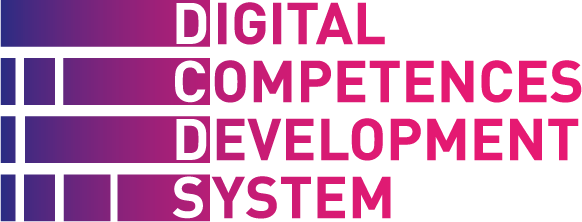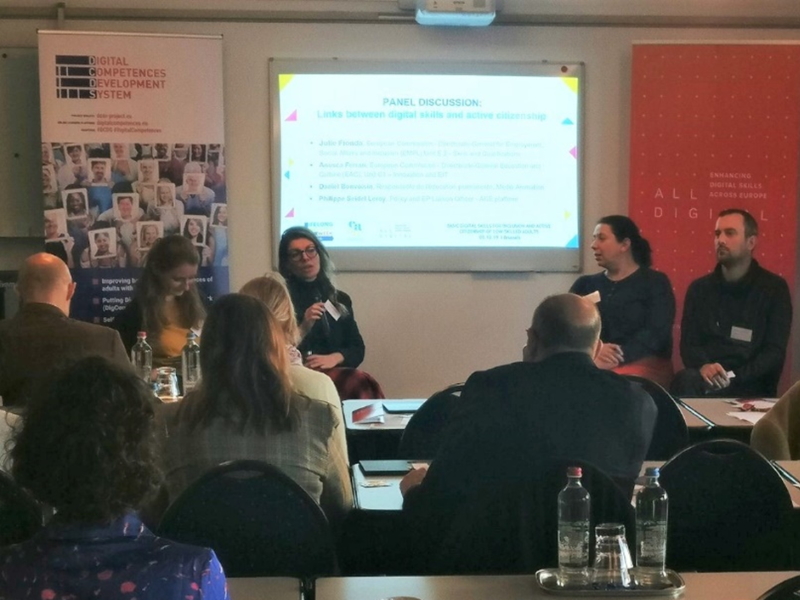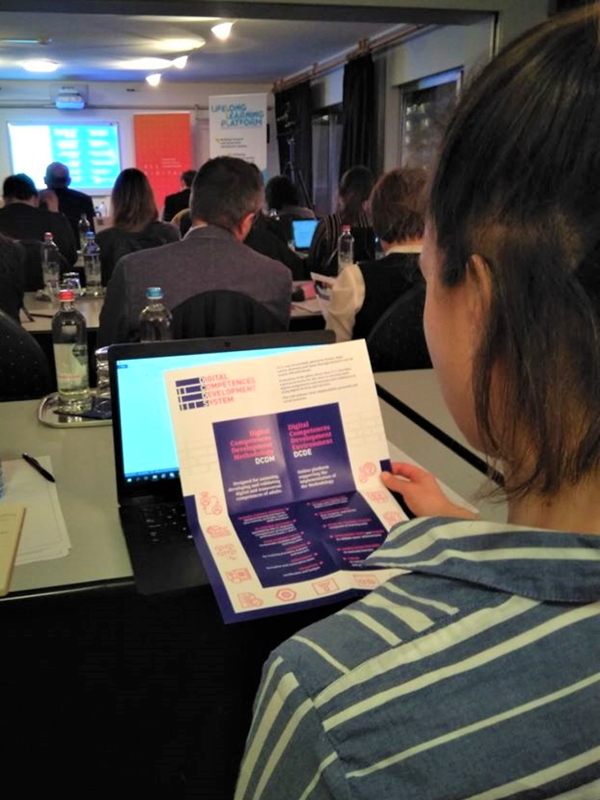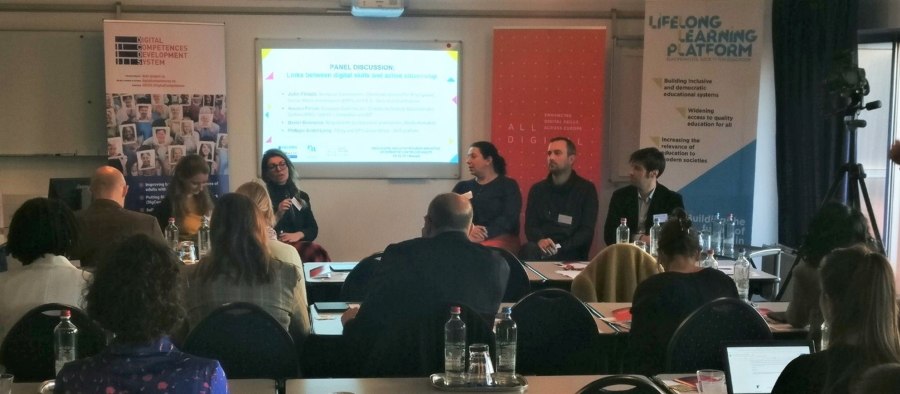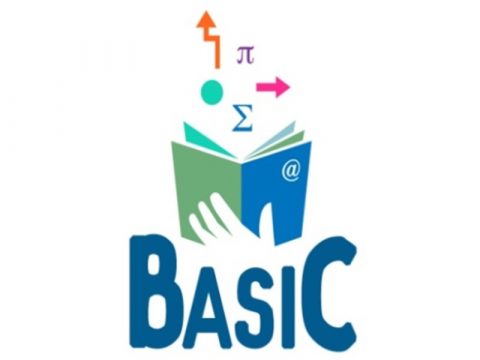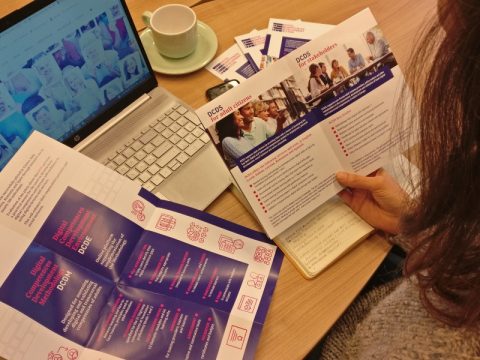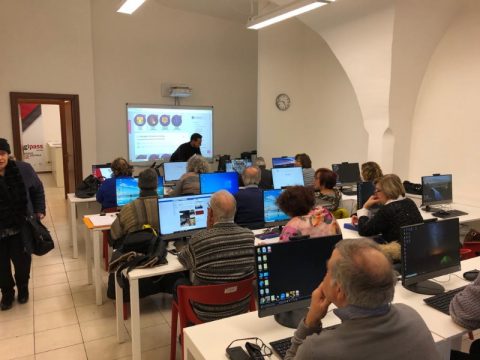by Francesca Operti, EAEA
The DCDS project establishes a framework to provide adults with low digital skills with the basic digital and transversal competences needed for employment, personal development, social inclusion and active citizenship.
After two years of intense and productive work, the DCDS project is about to end. The consortium developed an open, innovative, multilingual Digital Competences Development System (DCDS), aligned to DigComp, and used it to provide non-formal training to low-skilled adults in different European countries. The last two outputs produced by the consortium are now available on the project website. The DCDS policy influence toolkit and the DCDS policy recommendations are closely linked and they both aim to empower policy-makers and key stakeholders from different fields to formulate integrated policies for developing and recognising adult citizens’ basic digital competences.
The policy toolkit
The DCDS Policy Influence Toolkit consists of a series of tools and suggestions on how to develop a strategy to influence policy makers (and ultimately policy making) in four main steps: - Understanding the policy context; - Identify your target groups; - Choose a policy influence method; - Monitoring and evaluating advocacy and a special chapter on strategies to engage policymakers.
The DCDS Policy Influence Toolkit consists of a series of tools and suggestions on how to develop a strategy to influence policy makers (and ultimately policy making) in 4 main steps (Understanding the policy context; Identify your target groups; Choose a policy influence method; Monitoring and evaluating advocacy) and a special chapter on strategies to engage policymakers.
The toolkit is the result of a long period of reflection and various exercises on the policy impact of work carried out by the partners throughout the whole project lifespan. The document includes examples from their advocacy work at the European, national and regional level (called good practices), but also some useful policy messages that partners came up with in the last two years. The toolkit is very pragmatic and lists a number of concrete tools and tips for each of the above-mentioned steps.
“Interesting and easy to read. Might be of interest to many actors beyond the digital competence world”, DCDS project partner
The DCDS toolkit is for organizations working in the field of digital skills development and e-inclusion, but could be used by a broader range of adult education providers and organizations that wish to develop their policy influence strategy at local, regional, and national level.
The policy recommendations
The DCDS policy recommendations suggest clear policy objectives related to increasing the number of adults with basic digital skills, and identify the changes needed to support this policy outcome. The recommendations also provide effective proposals on how to include the DCDS project outputs within new digital competence policies and showcase some inspiring examples implemented in all over Europe that could be used to improve existing ones.
“The DCDS Policy Recommendations bring a lot of value for organizations, policy makers and individuals willing to use and to promote DCDS framework and tools”, DCDS project partner
“The document gives clear messages and tackles the main issues of digital literacy in relation to DCDS piloting”, DCDS project partner
The DCDS policy recommendations address three main target groups: European policymakers, national and regional policymakers, and local authorities. They were drafted by the European Association for the Education of Adults (EAEA) with the support of the DCDS partners, who represent 6 countries in the EU. The document has been enriched by experts in digital competence in the partner countries thanks to a peer review process (learn more) as well as enhanced by participants of a policy event organized by All Digital and EAEA within the framework of the 2019 Lifelong Learning Week.
At the event, stakeholders from different civil society organizations discussed with the representatives of the European Commission the main challenges faced by EU citizens in acquiring digital competences, the opportunities brought by the DCDS project results, and the potential of a validation process for digital competences based on DigComp 2.1 (the report will be published soon on the LLL Platform website). The event participants complimented the consortium for its outstanding work and inspiring outputs.
Now that the project has come to an end, the DCDS partners are all very committed to exploit the DCDS results at their level of action, including the recently published toolkit and recommendations, that will certainly ensure a strong policy impact for the project.
